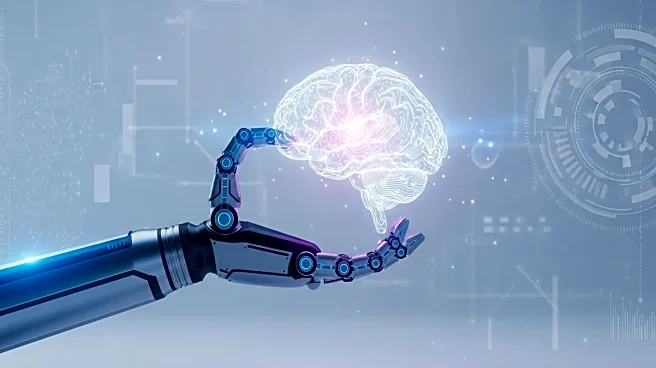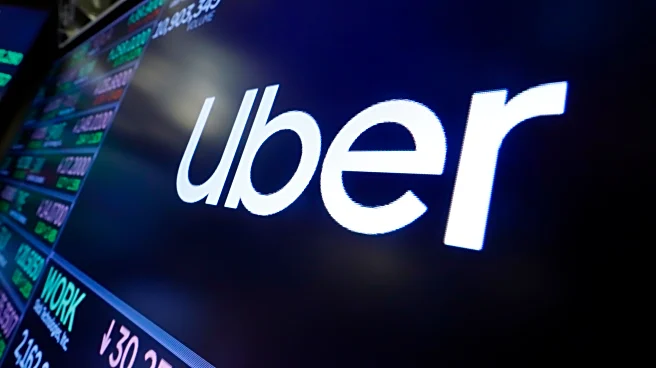What's Happening?
A recent study from Stanford University has quantified the impact of artificial intelligence (AI) on the job market, revealing that AI is not only taking jobs but also making it more challenging for young people to find employment. The study highlights that traditional tech roles, such as software developers, are among the most affected. Sinead Bovell, founder of the tech education company WAYE, discusses the misconceptions about AI's role in the workforce, noting that AI is now capable of performing tasks that were previously thought to be safe from automation, including creative and unpredictable tasks. Bovell emphasizes the importance of developing skills such as judgment, communication, deep thinking, and adaptability to remain competitive in a workforce increasingly influenced by AI.
Why It's Important?
The findings of the Stanford study underscore the transformative impact of AI on the U.S. job market, particularly for young professionals entering the workforce. As AI continues to evolve, it challenges traditional employment structures and necessitates a shift in educational focus towards skills that cannot be easily automated. This development has significant implications for industries reliant on routine tasks, potentially leading to job displacement and requiring workers to adapt to new roles. Companies may reconsider hiring practices, favoring AI for tasks that can be automated, which could lead to a reevaluation of workforce needs and training programs.
What's Next?
As AI technology advances, educational institutions and policymakers may need to reassess curricula to emphasize skills that complement AI capabilities, such as critical thinking and adaptability. Businesses might invest in AI oversight roles to ensure quality control and mitigate errors in AI-generated outputs. The workforce may see a shift towards roles that require human judgment and creativity, prompting individuals to continuously update their skill sets to remain relevant. The ongoing evolution of AI will likely drive further research into its societal impacts and the development of strategies to integrate AI into the workforce sustainably.
Beyond the Headlines
The integration of AI into the workforce raises ethical considerations regarding job displacement and the equitable distribution of opportunities. As AI becomes a general-purpose technology, it may redefine societal structures and necessitate new legal frameworks to address its implications. The cultural shift towards AI-driven work environments could influence how individuals perceive career paths and personal development, potentially fostering a mindset of lifelong learning and adaptability.










